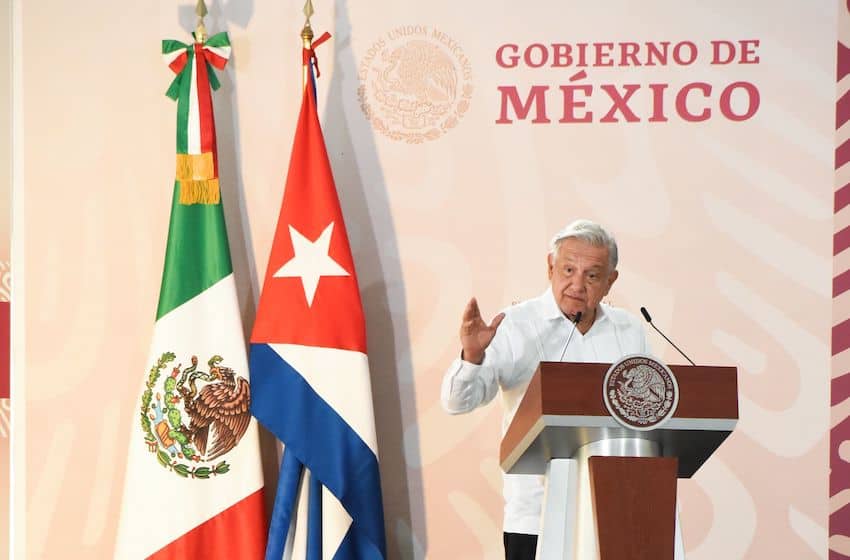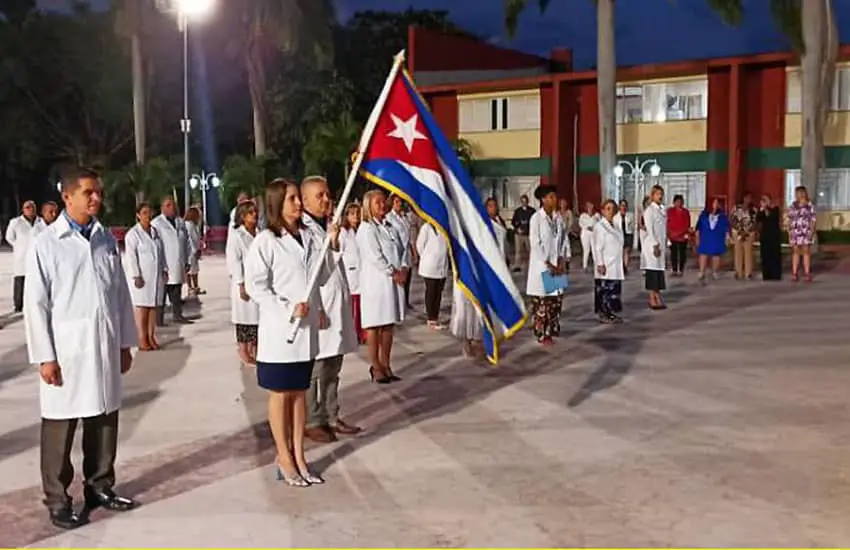The federal government announced Tuesday that 2,700 Cuban medical specialists will come to Mexico to work, joining 950 Cuban doctors already in the country.
Zoé Robledo, general director of the Mexican Social Security Institute (IMSS), told President Andrés Manuel López Obrador’s morning press conference that Cuban specialists will help fill shortages in the areas of surgery, anesthesiology, pediatrics, gynecology and obstetrics, internal medicine and emergency care.

“In addition to the 950 [Cuban] doctors that are already working in 23 states of the country, 2,700 doctors in these specialties I just mentioned are joining us,” he said.
Their employment in Mexico is the result of an agreement between the Mexican and Cuban governments.
President Andrés Manuel López Obrador is an outspoken supporter of Cuba and its communist government and has repeatedly called on the United States to end its embargo against the island nation.
Robledo said the Cuban specialists will work at hospitals located mainly in rural areas but also in areas of “high marginalization.”
With the arrival of the 2,700 Cuban specialists, “these hospitals will have an average workforce of 12 doctors,” he said, adding that they will consequently have the capacity to undertake surgeries that in many cases are only performed at large hospitals in big cities.
The hiring of Cuban doctors by the federal government to work at IMSS hospitals would appear at first glance to be a praiseworthy initiative. But there is significant opposition to it, including from Mexico’s medical community and opposition politicians.

When the federal government announced its intention to hire some 500 Cuban doctors in 2022, the heads of 30 medical colleges, associations and federations expressed their “profound disapproval” of the plan, saying that it was justified by a supposed rather than real shortage of doctors.
The hiring of foreign doctors is a “serious offense” against Mexican health professionals, they said in a statement.
“In our country, there are doctors with abilities endorsed by the universities of the Mexican republic,” and they are equipped with “full knowledge of the needs and idiosyncrasies of our population,” the statement said.
In May, Senator Julen Rementería, the National Action Party’s leader in the upper house of the federal Congress, questioned why Cuban doctors were being brought to Mexico when “there are 51,000 Mexican doctors who don’t have work.”
He said the hiring of Cuban doctors is “contrary” to the government’s pledges to “provide employment to the people of Mexico.”
Health Minister Jorge Alcocer asserted in 2022 that Mexican doctors were unwilling to work in remote areas, leading the government to hire Cubans.
López Obrador said Tuesday that he very much appreciated “the support of the people and government of Cuba because they’re helping us [by] sending medical specialists.”
More concerns about Cuban doctors in Mexico
In 2021, Rementería asserted “there was not a single piece of evidence” that the 585 Cubans brought to Mexico to treat COVID patients had medical degrees.
He accused the federal government, the Mexico City government — led at the time by President-elect Claudia Sheinbaum — and the Cuban government of committing a 255-billion-peso fraud by bringing “fake doctors” to Mexico.
Ruling Morena party lawmakers rejected his claims.
In 2022, the NGO Prisoners Defenders alleged in a report that Cuban doctors in Mexico were working in conditions of “modern slavery,” although López Obrador said they would be paid wages equal to those earned by their Mexican counterparts.
Among other concerns, Prisoners Defenders said that Cuban doctors had entered Mexico at military airports on Mexican military aircraft, “bypassing all Mexican civilian
immigration procedures.”
The Cuban government, Reuters reported, “has said its deployment of doctors around the world is its primary source of foreign income.”
For its part, the United States Department of State noted in a statement earlier this year that “the COVID-19 pandemic increased the need for medical workers in many places around the world, and the Cuban government helped fill the gap by increasing the number of its medical workers abroad, including through the use of its Henry Reeve Brigade, which Cuba first initiated in 2005 to respond to natural disasters and epidemics.“
“There are serious concerns with Cuba’s recruitment and retention practices surrounding this program, exacerbating workers’ vulnerability to being subject to forced labor,” the State Department added.
With reports from Reuters
